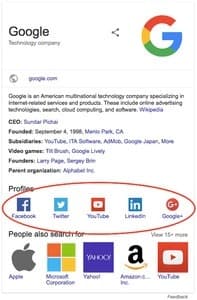The Ultimate Template for Structured Data Markup

TEMPLATE
Are you looking for an easy to use template to help you generate structured data for your website?
Check out our inhouse made (free) Google Spreadsheet, where you can easily create and edit the most common microformats which are currently supported by Google.
The structured data types you can create in this template are:

1. Organization Schema
Organization schema is the perfect opportunity to enhance the way your company is represented in Google’s search. Here is an example of Organization schema for Kaizen with searchbox:
<script type="application/ld+json">
{
"@context": "https://schema.org",
"@type": "WebSite",
"url": "https://https://www.kaizensearch.co.uk//",
"potentialAction": {
"@type": "SearchAction",
"target": "https://query.https://www.kaizensearch.co.uk/search?q={search_term_string}",
"query-input": "required name=search_term_string"
}
"publisher": {
"@type": "Organization",
"name": "Kaizen",
"logo": {
"@type": "ImageObject",
"url": "https://www.kaizensearch.co.uk/wp-content/kaizen/img/kaizen-logo-amp.jpg",
"width": 600,
"height": 60
}
}
</script>

2. Video Object Schema
Structured data markup for videos can make videos embedded on your site to appear in search results, which can be useful for “how to” or DIY videos.
Example:
<script type="application/ld+json">
{
"@context": "http://schema.org",
"@type": "VideoObject",
"name": "Title",
"description": "Video description",
"thumbnailUrl": "https://www.example.com/thumbnail.jpg",
"uploadDate": "2015-02-05T08:00:00+08:00",
"duration": "PT1M33S",
"publisher": {
"@type": "Organization",
"name": "Example Publisher",
"logo": {
"@type": "ImageObject",
"url": "https://example.com/logo.jpg",
"width": 600,
"height": 60
}
},
"contentUrl": "https://www.example.com/video123.flv",
"embedUrl": "https://www.example.com/videoplayer.swf?video=123",
"interactionCount": "2347"
}
</script>

3. Article
Example for article structured data in microdata HTML format:
<div> <h2>Article headline</h2> <h3>By John Doe</h3> A most wonderful article <div> <img src="https://google.com/thumbnail1.jpg" /> </div> <div> <div> <img src="https://google.com/logo.jpg" /> </div> </div> </div>

4. Product Rating Schema
This markup lets you display product information, such as rating by your customers or its price directly in search results.
<script type="application/ld+json">
{
"@context": "http://schema.org/",
"@type": "Product",
"name": "Executive Anvil",
"image": "http://www.example.com/anvil_executive.jpg",
"description": "Sleeker than ACME's Classic Anvil, the Executive Anvil is perfect for the business traveler looking for something to drop from a height.",
"mpn": "925872",
"brand": {
"@type": "Thing",
"name": "ACME"
},
"aggregateRating": {
"@type": "AggregateRating",
"ratingValue": "4.4",
"reviewCount": "89"
},
"offers": {
"@type": "Offer",
"priceCurrency": "USD",
"price": "119.99",
"priceValidUntil": "2020-11-05",
"itemCondition": "http://schema.org/UsedCondition",
"availability": "http://schema.org/InStock",
"seller": {
"@type": "Organization",
"name": "Executive Objects"
}
}
}
</script>
All of these structured data types can be generated in JSON and microdata (HTML).
How to use this template?
- Fill in your data in white cells within respective sheet
- Formulas will automatically generate appropriate schema in both JSON and Microdata formats (blue cell)
- Copy and paste one of the schemas (JSON or Microdata) and paste it as value only to the white cell with dotted frame
- Copy the schema from the FORMULA BAR of the red cell to the Google’s Structured Data Testing tool: https://developers.google.com/structured-data/testing-tool/
If your schema validates, you can now paste it to your source code.
You can access and download the template here.

 Search
Search PR
PR AI
AI Social
Social














